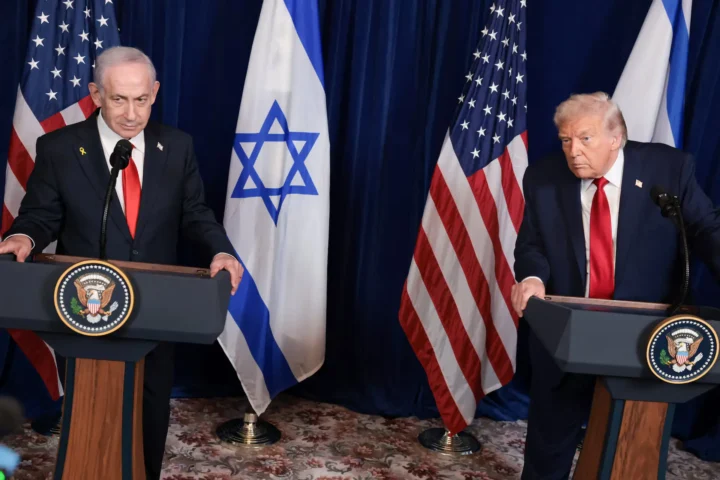As the United States barrels toward the 2024 presidential election, the usual fanfare of party conventions is in full swing. These carefully orchestrated spectacles, designed to showcase political elites and rally the base, have often served as a barometer of the nation’s priorities. Yet, in this election cycle, foreign policy—a subject often relegated to the background during times of domestic tranquility—has reemerged as a central issue. The wars in Ukraine and Gaza, coupled with the rising challenge from China, have forced both major political parties to address global issues with an urgency not seen in recent years.
Historically, foreign policy has surged to the forefront of U.S. political discourse during periods of international instability or conflict, shaping not just the tenor of campaigns but also the platforms on which candidates run. The 2024 conventions are no exception. While economic concerns remain the top priority for many voters, the prominence of foreign policy in this election underscores the complex and interconnected world in which we live—a world where decisions made in Washington ripple across the globe and back again.
This year’s conventions have seen the traditional domestic issues—health care, education, and jobs—jostling for airtime with the pressing challenges of international relations. The Republican and Democratic parties have each found themselves grappling with internal divisions over how to approach these global crises. On the Democratic side, the Israel-Hamas war has exposed a generational divide within the party. Younger Democrats, increasingly sympathetic to the Palestinian cause, are at odds with older party members and nominee Kamala Harris, who have voiced strong support for Israel despite concerns over the war’s civilian toll. This rift threatens to fracture the party’s unity, a critical issue as they head into the general election.
Republicans, meanwhile, are embroiled in their own foreign policy dilemma. The ongoing war in Ukraine has split the party, with some factions advocating for continued support to Kyiv while others, weary of endless conflict and skeptical of U.S. interventionism, call for a reevaluation of aid. The omission of Ukraine from the Republican platform is telling—a nod to former President Donald Trump’s stance and a sign of the deepening rift within the GOP on how to handle this conflict.
These divisions highlight a broader truth about foreign policy in American politics: it is both a unifier and a wedge. When the country faces a clear external threat, such as in the aftermath of 9/11, foreign policy can galvanize bipartisan support and national unity. However, in more ambiguous or protracted conflicts, it often becomes a source of contention, revealing the fissures within parties and the electorate.
The 2024 election also presents a rare convergence on certain foreign policy issues. Both parties have identified China as a strategic challenge, with a bipartisan consensus emerging on the need to “de-risk” the U.S.-China relationship and bolster support for Taiwan. This shared stance reflects a growing recognition of China’s global influence and the strategic necessity of addressing it—a rare point of agreement in an otherwise polarized political landscape.
Immigration, too, remains a flashpoint. With record numbers of border encounters in 2023, it has become a pivotal issue in several swing states. The Democratic platform leans toward policies that facilitate legal immigration, while the Republican stance frames immigration as a national security issue, advocating for stricter border controls. This divergence underscores the broader ideological chasm between the parties on how to balance compassion with security—a debate that will undoubtedly shape the election’s outcome.
As the conventions conclude and the candidates shift their focus to the general election, the role of foreign policy will be scrutinized not just for what it says about America’s place in the world, but for what it reveals about the nation’s priorities, values, and future direction. In a globalized world, the boundary between domestic and foreign policy is increasingly blurred, and the decisions made by the next president will have profound implications both at home and abroad.
The 2024 election is a reminder that while foreign policy may not always dominate the headlines, it remains a quietly critical component of the presidential race. It is a subject that demands careful consideration, not just from the candidates but from the voters who will ultimately determine the direction of the United States in an uncertain world.











